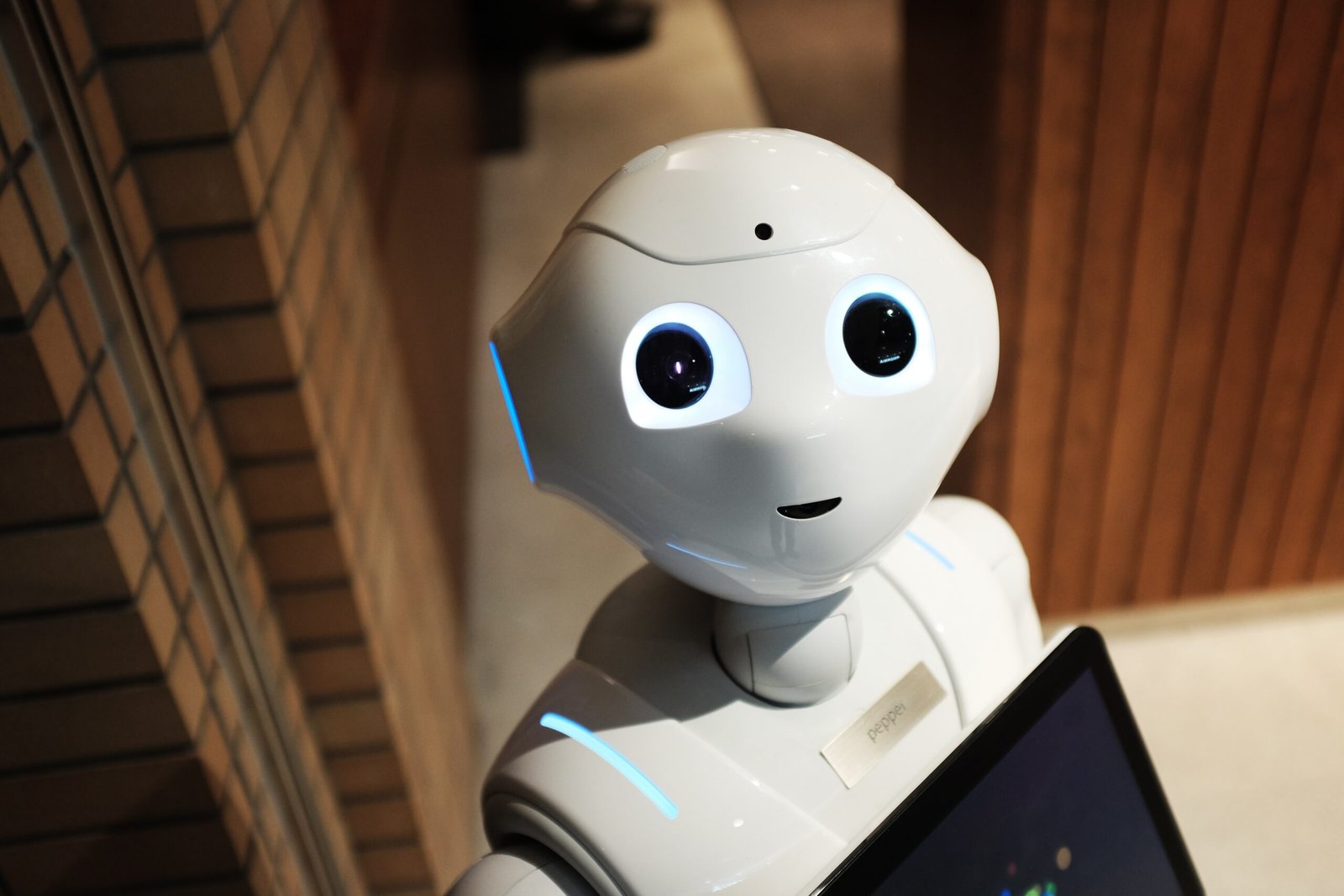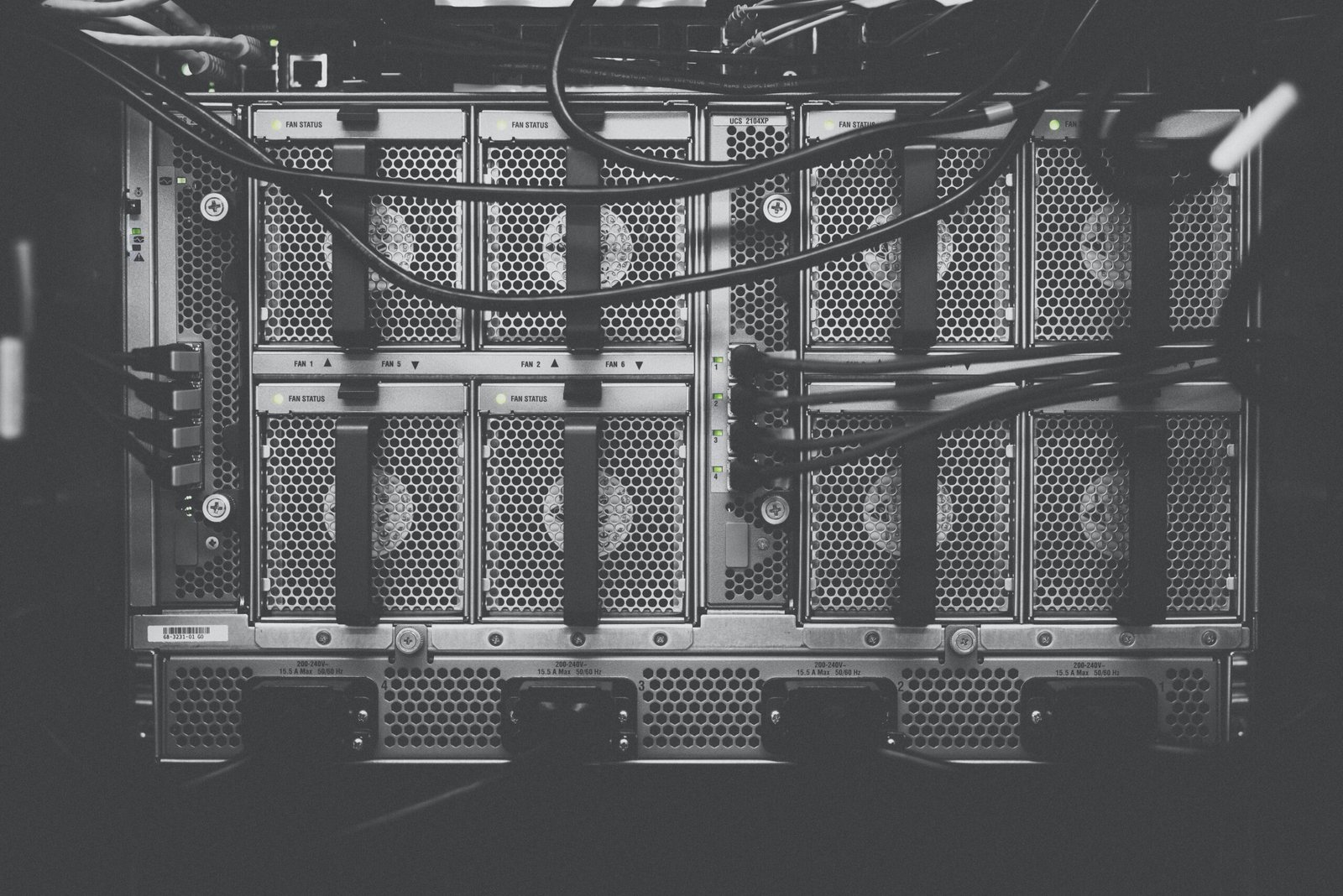In this article, we’ll explore the impact of AI on different industries. From healthcare to finance, AI has been reshaping the way businesses operate and transforming various sectors. We’ll uncover how AI is revolutionizing customer service, enhancing productivity, and driving innovation in these industries. So, get ready to discover the fascinating ways in which AI is leaving its mark across sectors. Artificial Intelligence (AI) has made a significant impact on various industries, revolutionizing the way businesses operate and improving efficiency. Let’s explore some key domains where AI has had a substantial influence.

This image is property of images.unsplash.com.
Healthcare
AI has found its way into the healthcare sector, transforming medical diagnosis, drug research and development, personalized medicine, patient care, and even surgery. Medical diagnosis has greatly benefited from AI, as machine learning algorithms can analyze vast amounts of medical data and accurately detect diseases or abnormalities. In drug research and development, AI helps expedite the process by identifying potential drug candidates and predicting their efficacy. Moreover, AI enables personalized medicine by using individual patient data to tailor treatment plans and prescriptions. Patient care has also been enhanced through AI-powered virtual assistants, helping in tasks such as appointment scheduling and medication reminders. Finally, AI-driven robotic systems assist surgeons in complex procedures, improving precision and minimizing risks.
Manufacturing
The manufacturing industry has seen a remarkable transformation with the integration of AI technologies. Automated production lines have become more prevalent, where AI-powered robots handle repetitive and labor-intensive tasks, leading to increased production efficiency and reduced costs. Quality control is also significantly improved with AI, as machine learning algorithms can quickly identify defects and ensure product consistency. Predictive maintenance is another area where AI shines, as it can predict equipment failures based on data patterns, preventing costly downtime. AI also optimizes inventory management, ensuring the right products are available at the right time, while supply chain optimization helps streamline the movement of goods, reducing delays and improving overall logistics.
Finance
AI has had a significant impact on the financial industry, disrupting various areas such as automated trading, risk assessment, customer service, personalized financial advice, and algorithmic lending. Automated trading systems leverage AI algorithms to analyze market data in real-time, enabling swift and precise decision-making for traders. Risk assessment and fraud detection have also improved with AI, as advanced algorithms can identify suspicious patterns and potential fraudulent activities. Customer service has been enhanced through the use of virtual assistants, providing quick and accurate responses to customer queries and requests. Personalized financial advice has become more accessible with AI-powered platforms, catering to individual needs and goals. Moreover, AI-based algorithms are revolutionizing lending practices, facilitating faster loan approvals and minimizing the risk of default based on borrower data analysis.
Transportation
The transportation industry has experienced a significant AI-driven transformation, particularly in the areas of autonomous vehicles, traffic management, logistics, and customer service. Autonomous vehicles are the pinnacle of AI integration, with self-driving cars and trucks offering a glimpse into the future of transportation. AI-powered traffic management systems optimize routes, reduce congestion, and enhance safety by analyzing real-time data from various sources. Logistics and route optimization have also benefited from AI, as intelligent algorithms optimize delivery routes, reducing fuel consumption and minimizing delivery times. Additionally, customer service has been enhanced with the use of virtual assistants that provide efficient and personalized support, such as real-time updates and route planning assistance.

This image is property of images.unsplash.com.
Retail
AI has revolutionized the retail industry by improving inventory management, demand forecasting, marketing strategies, customer service, and pricing optimization. With AI-powered inventory management systems, retailers can accurately track stock levels, predict demand, and ensure optimal product availability. Demand forecasting is also significantly improved with AI algorithms that analyze historical data, market trends, and external factors to predict future demand accurately. Personalized marketing campaigns make use of AI to target customers based on their preferences and behavior, increasing sales and customer satisfaction. Automated customer service, through chatbots and virtual assistants, provides quick and efficient responses to customer queries, improving overall customer experience. Lastly, pricing optimization employs AI algorithms to determine the optimal prices for products, maximizing sales and profitability.
Education
The education sector has witnessed the integration of AI technologies in various aspects, such as personalized learning, automatic grading, virtual tutoring, administrative tasks automation, and curriculum design. AI enables personalized learning experiences by analyzing the strengths, weaknesses, and learning styles of individual students, tailoring educational content accordingly. Automatic grading and feedback systems save significant time for educators by automating the grading process for objective assessments. Virtual tutoring platforms leverage AI algorithms to provide personalized support to students, simulating one-on-one learning experiences. Administrative tasks automation streamlines administrative processes, such as scheduling and record-keeping, allowing educators to focus more on teaching. Finally, AI assists in curriculum design by analyzing student performance data and educational trends, facilitating curriculum improvements and adjustments.

This image is property of images.unsplash.com.
Telecommunications
AI has made notable strides in the telecommunications industry, with applications in network optimization, customer service, predictive maintenance, security, and personalized marketing. Network optimization is crucial for telecommunication providers to ensure efficient and reliable services, and AI algorithms analyze network data to identify areas of improvement, optimize bandwidth allocation, and minimize downtime. Customer service has greatly benefited from AI-powered virtual assistants that can handle customer inquiries, troubleshoot issues, and provide tailored solutions. Predictive maintenance prevents network failures by analyzing data patterns and identifying potential equipment malfunctions. AI also plays a significant role in ensuring network security, by detecting and preventing security breaches and fraud. Additionally, personalized marketing campaigns leverage AI algorithms to target customers with highly relevant and tailored offers, increasing customer engagement and satisfaction.
Energy
The energy sector has seen remarkable advancements with the integration of AI, particularly in grid optimization, predictive maintenance, demand forecasting, smart metering, and renewable energy management. Grid optimization is critical for ensuring a stable and efficient power supply, and AI algorithms analyze consumption patterns and manage energy flow to improve grid performance. Predictive maintenance utilizes AI to monitor and analyze equipment data, identifying potential issues and enabling timely repairs, reducing downtime and maintenance costs. Demand forecasting is crucial for energy companies to optimize generation and distribution, and AI algorithms predict future energy consumption based on historical data and external factors. Smart metering, enabled by AI, provides real-time data on energy consumption, facilitating efficient energy usage and billing. Lastly, AI aids in the management of renewable energy sources by optimizing generation and storage, increasing overall efficiency and reducing reliance on nonrenewable resources.
Agriculture
The agricultural industry has experienced significant transformation through AI applications such as precision farming, crop monitoring, livestock management, automated harvesting, and supply chain optimization. Precision farming leverages AI technologies, such as GPS and remote sensing, to optimize agricultural practices, including precise nutrient application, irrigation management, and pest control. Crop monitoring and analysis benefit from AI algorithms that analyze satellite imagery and sensor data to identify crop health, detect diseases, and optimize yield. Livestock management has also improved with AI-powered systems that monitor animal health, feeding schedules, and environmental conditions, maximizing productivity and ensuring animal welfare. Automated harvesting systems employ AI to detect ripe crops, minimizing manual labor and improving efficiency. Supply chain optimization in agriculture utilizes AI algorithms to optimize delivery routes, reduce wastage, and ensure timely distribution, improving overall logistics and increasing profits.
Legal
AI has made notable advancements in the legal industry, impacting areas such as legal research, contract review, e-discovery, case prediction, and legal chatbots. Legal research and document analysis have been significantly expedited with AI-powered systems that can analyze vast amounts of legal documentation rapidly, aiding lawyers in their research and case preparation. Contract review and analysis, traditionally time-consuming, have been streamlined with the use of AI algorithms that can automatically review contracts, identify potential risks, and ensure legal compliance. E-discovery, the process of identifying relevant electronic information for legal cases, has benefited from AI technologies that can quickly and accurately analyze large volumes of data, reducing time and resource requirements. Case prediction and risk assessment employ AI algorithms to analyze past legal cases and predict the outcomes and potential risks associated with ongoing litigation. Legal chatbots and virtual assistants provide basic legal information, answer frequently asked questions, and guide individuals through legal processes, providing accessible legal support.
In conclusion, AI has significantly impacted numerous industries, bringing about increased efficiency, improved decision-making, and enhanced customer experiences. From healthcare and manufacturing to finance, transportation, retail, education, telecommunications, energy, agriculture, and legal sectors, AI has proven to be a transformative force, revolutionizing operations and paving the way for further technological advancements. As AI continues to evolve, these domains are expected to witness even greater breakthroughs, ultimately reshaping the way industries operate and fostering a more connected and intelligent world.
